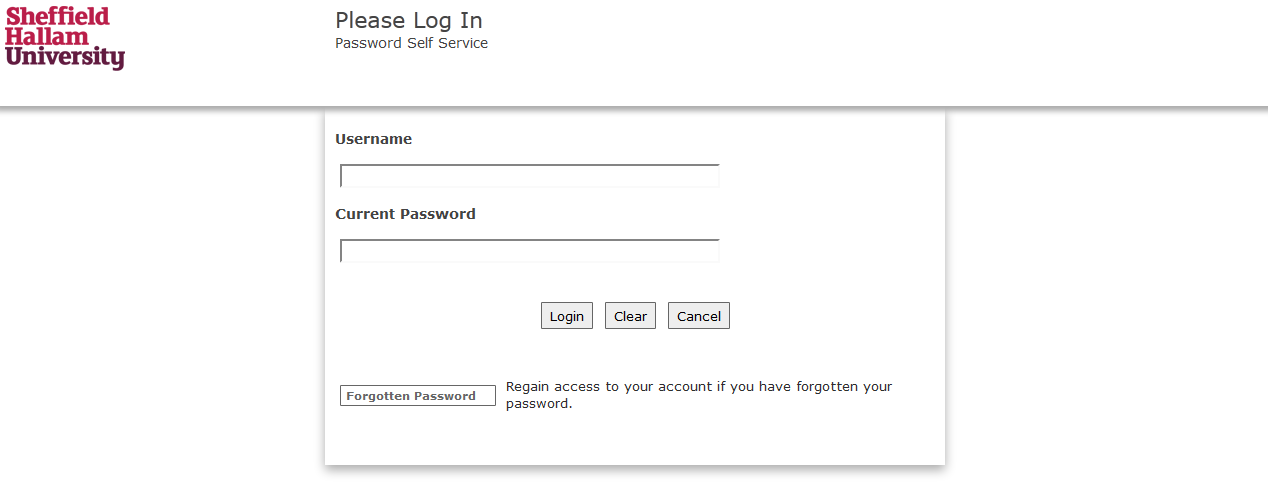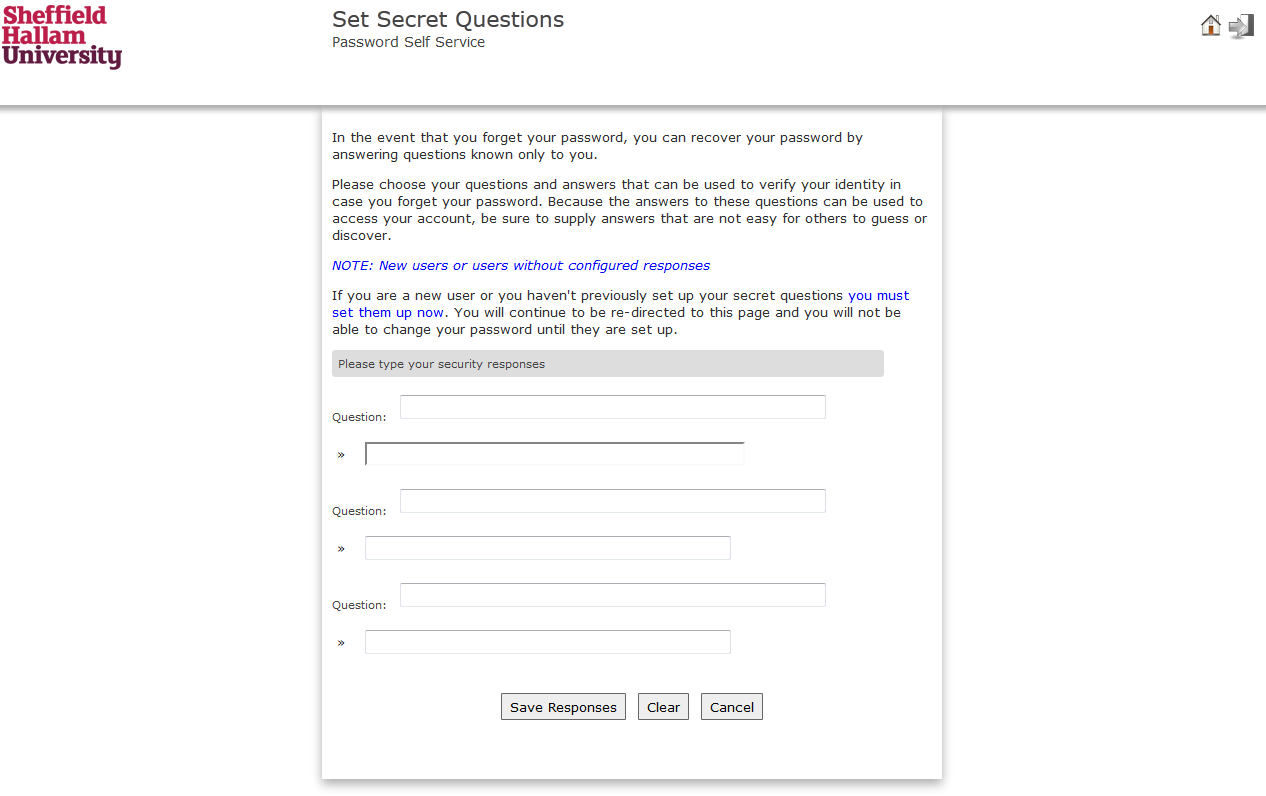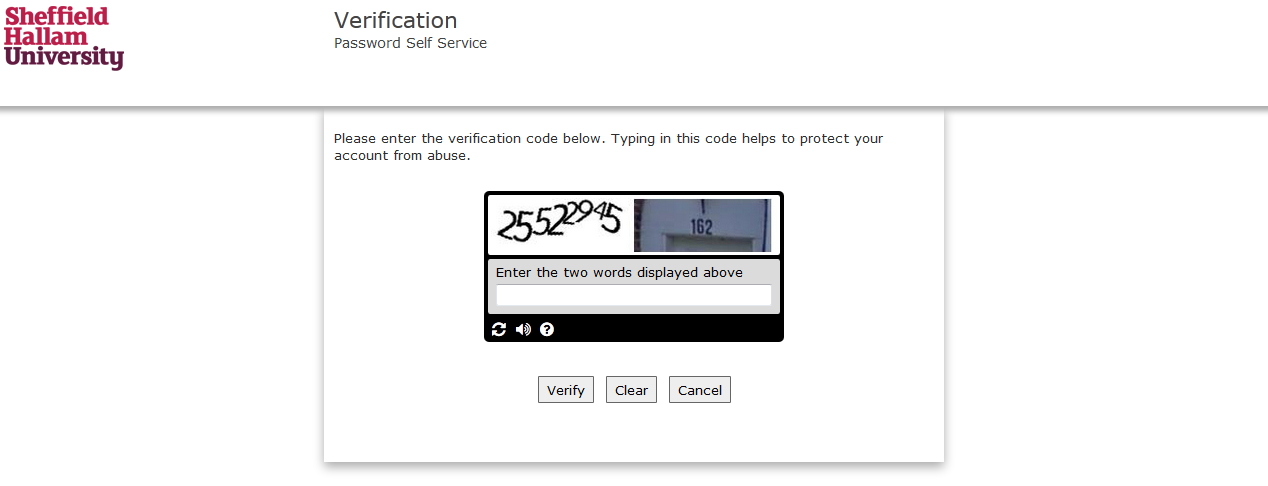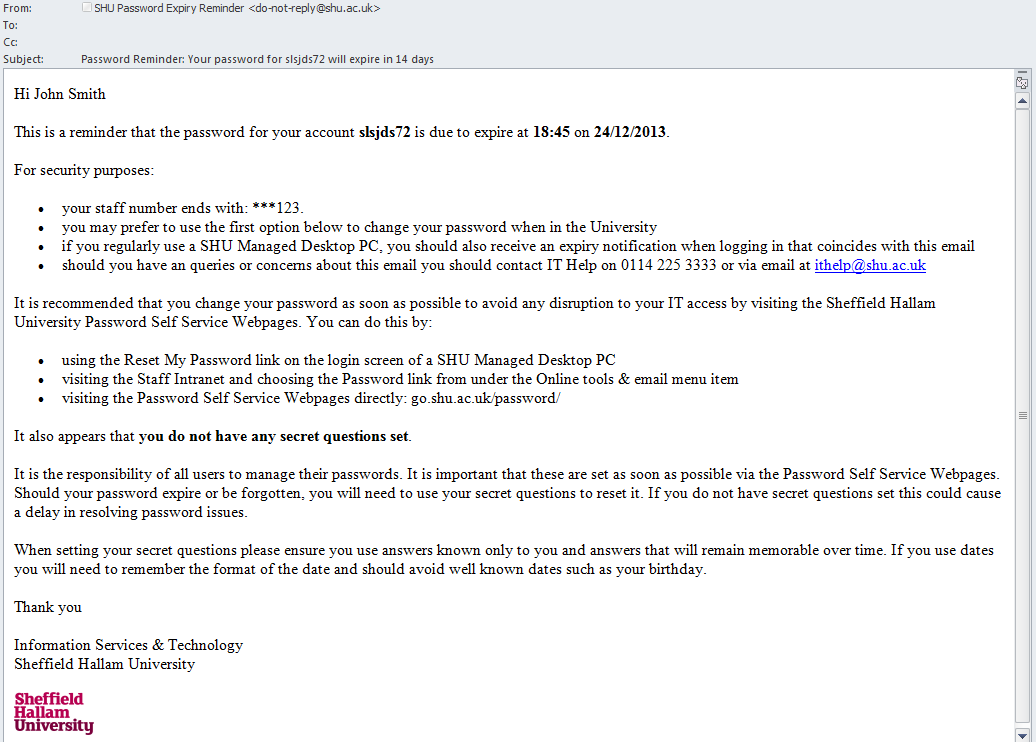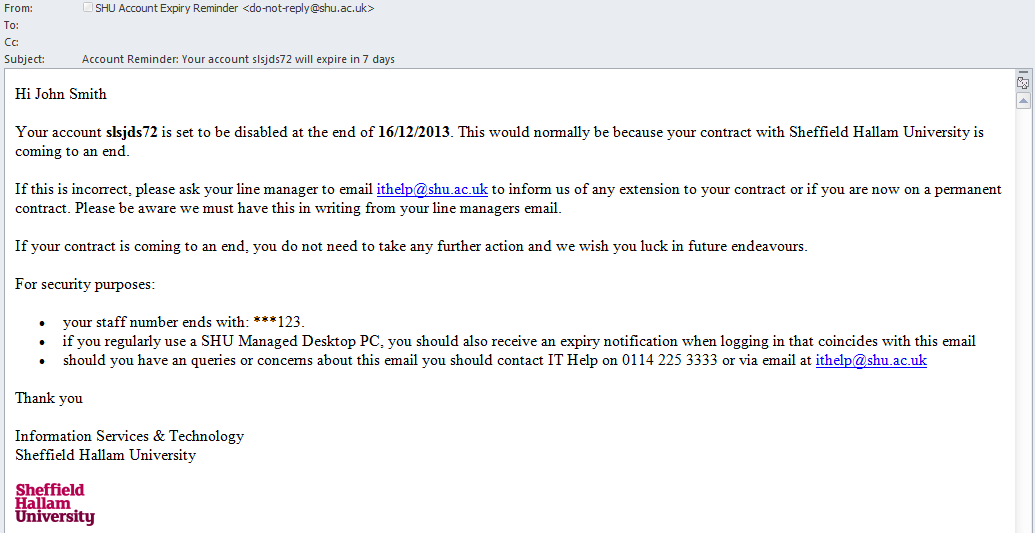Since a security patch in late 2013, a few users have reported that they are not getting notifications of new emails within Outlook (but can in OWA and Activesync). These users are using category views.. There is no fix from Microsoft at the time of writing but a workaround is to change Outlook to cached mode. This can easily be done on a SHU PC by using the [MD Help] application that is available from the Start Menu and selecting the Cached Exchange Mode option from the [Self Service Tasks]
Adobe Flash Player 11.9.900.152 being distributed to MD7 Workstations
After successful testing with the various test groups we have released Adobe Flash Player 11.9.900.152 to MD7 workstations in order to resolve critical flaws with previous versions and to provide new functionality.
The update is being distributed in a phased roll out so it will take a few days to be applied to MD7 Lab and Office workstations and will only install when the workstation is at the ctrl+alt+del screen.
In order to test the version of Flash that is installed on your workstation, using Internet Explorer visit:
http://www.adobe.com/software/flash/about
Using Chrome will report a slightly different version as Chrome has its own version of Flash installed that is installed as part of the Chrome update.
New Password Change Application and Expiry Notifications
Update 14/01/2014 – IS&T have now released the new password change application and the content below has been updated to reflect this.
In order to minimise loss of access to University systems caused by expired passwords and accounts, Information Systems and Technology have been working on improvements to user account and password-related processes. Improvements include:
- a new version of the password change application
- email notifications for passwords nearing expiry
- email notifications for accounts nearing expiry
We’re now sending the email notifications and have released (on 14/01/2014) the first phase of the new password change application which will be available to use for staff and non-student user accounts to begin with.
Password Change Application
A new look password change application has been produced and which offers improved security and functionality. The application is available via http://go.shu.ac.uk/password/, redirects have been put on all old addresses and links that we are aware of.
When logging in to the application, if you have not already done so, you will now be required to complete the secret questions you can use for password recovery. You will not be able to change your password until you do so. This has been changed to ensure you are able to recover your account more easily in the event your password expires or is forgotten.
When using the forgotten password feature of the application off-campus, you will now also need to complete a CAPTCHA. This is to make off-campus access is more secure – you won’t be presented with one on campus.
Password Expiration Notification Emails
Emails will now be sent to you before your password expires to remind you of the upcoming expiry. An email will be sent to you 14 days, 7 days and 1 day prior to the expiry – unless you change your password.
This email will also prompt you to set up your secret questions (used for forgotten/expired password recovery) if you have not already done so.
Below is an example of this email:
Account Expiration Notification Emails
If you have an expiry set on your account (for example, temporary staff or staff about to leave SHU) you will now be sent emails reminding you of its upcoming account expiry. An email will be sent to you 28 days, 14 days, 7 days and 1 day prior to the expiry – unless your account expiry is extended or removed.
This should give you ample opportunity to ask your line manager to request your account expiry be extended or removed should this be appropriate.
Below is an example of this email:
Chrome 30.0.1599.101 being distributed to MD7 Workstations
After successful testing with the various test groups we have released Chrome 30.0.1599.101 to MD7 workstations in order to resolve critical flaws with previous versions and to provide new functionality.
The update is being distributed in a phased roll out so it will take a few days to be applied to MD7 Lab and Office workstations and will only install when the workstation is at the ctrl+alt+del screen.
MD7 Lab machines are currently being updated and the update will start being applied to Office machines from next week.
In order to test the version of Chrome that is installed on your workstation, start Chrome and check the version number.
Q: Drive mapping for all users
We have updated the loginscripts so that all users will now map a Q: drive during login which will be labelled ‘StudentSharedDrive’.
As with the N: drive for staff, this drive is an amalgamation of all the shared students directories that previously existed and so users will only see directories and files within Q: that they have access to.
Software List updated for 2013/14
The Software List has been updated to display the locations where software is available within SHU for MD2013/14.
The list is searchable and can either display all the software available in a specific lab, or the locations where a piece of software is available across the University.
MD7 workstations updated up MD2013/14
The project for updating MD2012 workstations to MD2013 has been completed as the patches to update existing MD2012 workstations to MD2013 have been distributed and applied to the vast majority of workstations within the University.
There are a few workstations left that are not MD2013 at present which are mainly laptops that either have not connected to the SHU wired network since the update was released or have not been in a position to install the update.
Any machine that is not MD2013 will either install the update in the future automatically or will be updated manually if there is an issue that needs resolving.
Google removes support for IE9 after release of IE11
Google has just announced that with the release of IE11, which is part of Windows 8.1, it will remove support of IE9, which was expected as Google have a policy of not supporting browsers other than the most current version and the previous version.
What is surprising is the speed of this given that IE11 has only been released for a few weeks, and especially considering that it isn’t even available for Windows 7 yet.
Update: IE11 has now been released for Windows 7
Warning message about using an out of date browser
When using Googleapps, such as Gmail, with IE9 the user will be presented with a warning message stating that the browser being used is out date and should be updated.
IE9 default browser within MD7 Managed Desktop
At present the University has IE9 installed within the Managed Desktop as the default browser due to some corporate applications not being compatible or supported with IE10.
The University did consider using IE10 for the current version of MD7 this year, but this was not done as it was considered that there was not enough assurance that it wouldn’t adversely affect our Corporate Applications or Teaching and Learning applications.
Future of IE9 within the University
We are actively considering our usage of IE9 within the University and have requested that is confirmed that all Corporate applications and Teaching & Learning applications will be supported if IE10 is installed, whilst considering solutions for the few applications we know are not supported.
At present the applications that are known to have issues with IE10 are just used by staff members.
For further info see:
Google drops Internet Explorer 9 support in Google Apps less than three weeks after IE11′s release
N&I Fact of the Week via Twitter
In order to try and promote the scale and complexity of the services provided by N&I we intend to try and distribute a ‘Fact of the Week’ via Twitter with information from an N&I service.
To receive updates from Networks & Infrastructure via Twitter follow ‘@SHUnetworks’
MD2012 workstation Patch 09 being distributed to MD7 workstations
After successful testing with the various test groups we have released MD2012 workstation Patch 09, which is the fifth patch for MD2012.
This is the second patch in a series of three for updating MD2012 workstations to MD2013.
The 3rd updated mentioned to make MD2012 workstations MD2013 is Java 1.6 JRE Update 45 which is currently being distributed to SHU workstations.
This update needs to be applied to workstations whilst it is at the ctrl-alt-del screen.
The patch takes a few minutes to run and ideally requires a reboot to occur in order the complete the updates, so initially we have set the update to only run at night and then automatically start any workstations that are switched off allowing them to install the updates, reboot and then switch off at the end of the process.
This means of course that the update will only apply to MD2012 workstations that are not left logged in overnight.
Any laptops will need to be using the wired network as WOL doesn’t work on wireless.
Any machine that doesn’t install the patch using this method will get the update in the future when we revert to the standard rollout method. This is just being done now to try and minimise disruption and cause less issues with the update, such as users rebooting the machine whilst software is being installed.
The update is being distributed in a phased roll out so it will take a few days to be applied to all MD2012 workstations, starting with the remaining MD2012 Lab machines to try and ensure all Lab machines are MD2013 before teaching commences.
Obviously this patch will not be applied to any machine that is using the MD2013 image that was released in July.
Patch-09 includes the following:
- RealPlayer Enterprise 2.1.10
- QuickTime 7.7.4
- vWorkspace client 7.6
- Windows Management Framework 3.0 (Inc. PowerShell 3.0)
- Sassafras K2 Keyserver Client 7.0
- Re-run file association reg files to re-association correct associations
- Set _PATCH = 9
- Set _VERSION = MD2013
- Set _MENVER = MD2013
Once the update has completed the workstation will be an MD2013 workstation.

